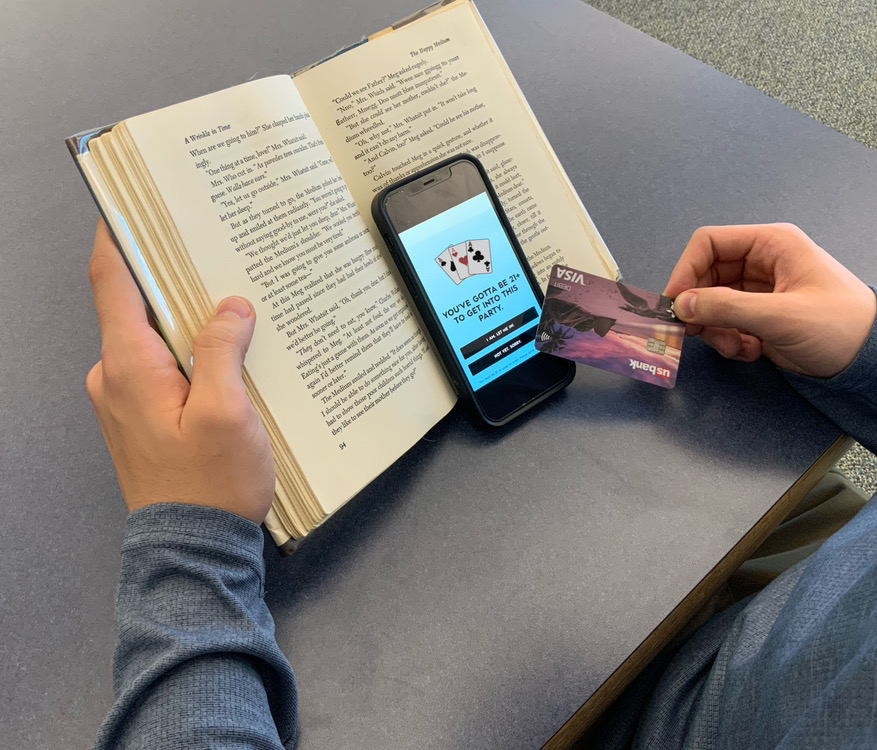Gambling Brings Danger for Teenagers
Teenagers participate in underage gambling which effects mental health permanently
Gambling presents many dangers that teens and young adults don’t see or realize, many times until it is too late. Factors like mental health and addiction are all issues that can result from underage gambling. It is important to look into the issue before making an impulse decision that can not be stopped.
Gambling is alluring to teens because there can be so much on the line at once. The mental process can be confusing, but can be scientifically explained. Dopamine, the chemical neurotransmitter is released deep in the brain when the excitement floods the body. This feeling becomes addicting and hard to stay away from, especially when gambling.
Teenagers are more likely to indulge in risk-taking behavior because they fail to pay attention to the negative outcomes. Gambling is a thrill because money, or a large reward is on the line. The only thing is, you can end up walking away with much less than what you had to begin with.
Mental health and mood swings become more dangerous as the addiction builds. At first, it’s exciting and fun, but it quickly drops your natural mood even when not gambling. This can lead to depression, something that kills thousands of teens each year.
This problem starts with exposure. Teens with parents who gamble are much more likely to develop addictions. The environment is filled with casinos and communities that have a strong influence. Some communities or cultures view gambling as an important value in society. This is an issue because gambling becomes viewed as positive, instead of negative.
The other psychological dangers include gambler’s fallacy which is the belief that if an event happens more often in the future (or past), then that same situation will less likely happen in the same occurrence.
For example, if you bet on the same horse or slot machine twice, and lose, then if you do it again you will win. This is a dangerous issue because it leads to losing more and more money as time goes on. This way of thinking can cause the addiction to keep building. There is no way for the gambler to know the correct number, color, or winner of a game because of this thinking, no matter the amount of confidence they may have.
This also plays into everyday life, eventually this “knowing” way of thinking completely takes over. It becomes the way of reasoning and thinking about every little detail. Avoiding it, it is hard, especially for teenagers. As the brain is not fully developed, it is hard to see the independence from the events. Such as, coins can not remember a previous flip or influence the next one. Separating reality and fallacy can be mentally too much for a teenager.
The next issue is ‘illusion of control’, where gamblers think they can control the outcome of a bet, but that isn’t possible. Gamblers believe it gives them an advantage when using slots or any other form of gambling. This also comes out to daily life, as students can ‘control’ an uncontrollable computer game or homework assignments. Or this even plays into athletes who have a ‘ritual’ before they go on.
This is extremely unhealthy because it leads to teens ultimately crashing and burning. It plays into depression, when their rituals don’t work like they thought they would. Overall, it makes people go crazy, and at such a young age, teenagers shouldn’t be a part of that destruction.
Gambling at a young age comes with many issues. It’s important to realize this when someone is tempted. Friends and family who know these risks will be helpful to the teen gambler. Having an addiction for gambling can also influence other forms of addiction, which the youth today needs to stay away from to be successful in their future. Any way you look at it, teenage gambling is wrong for young lives on so many levels.

Cameron Schwent is a senior at St. Dominic. She is a member of Writer’s Guild, Vinyl Club, and Student Ambassadors and participates onstage in St. Dominic’s...


